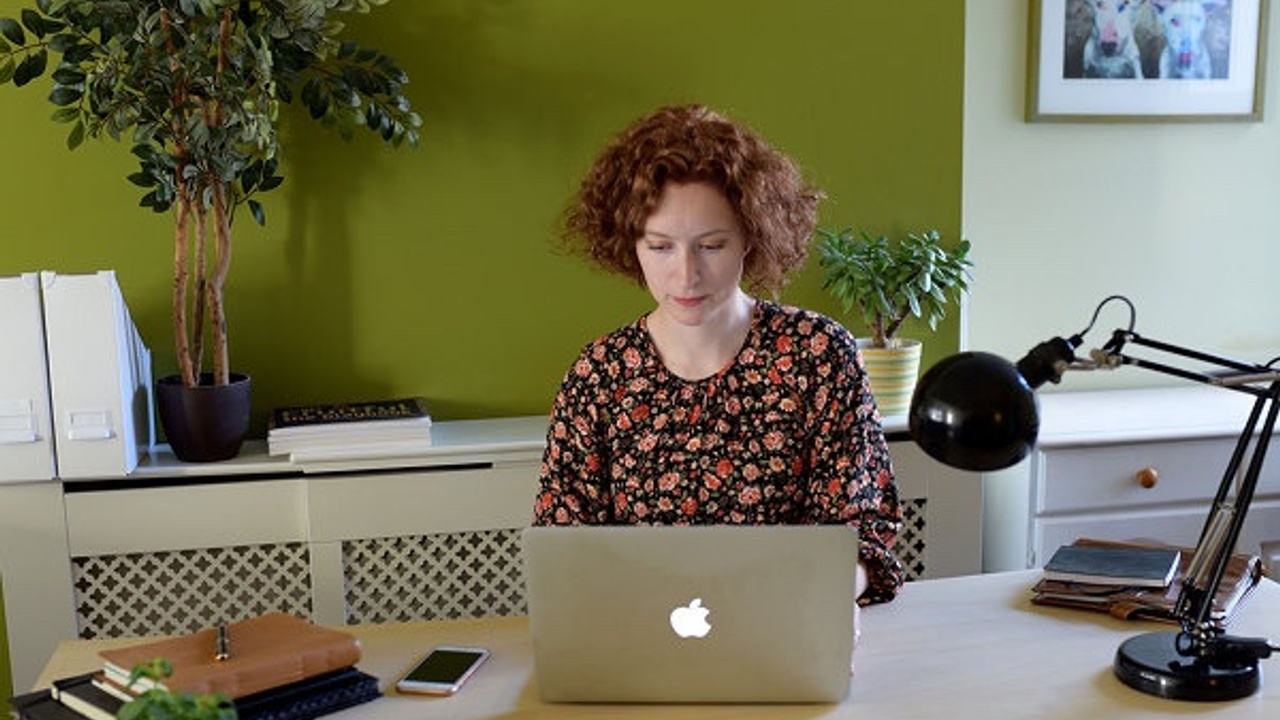My 7 top tips for working sustainably from home (even with young children)

I started my business working from home while my daughter was just a few months old. Having spent the last six and half years developing my business and being the primary carer for my daughter, I’ve learned ways to balance working and childcare.
Of course things are a bit different at the moment as schools are shut and my usual babysitters are unavailable, plus we’ve been thrown into this situation without time to plan.
On Friday 20 March I was invited to speak about working from home productively on the TogetherNetworking launch webinar. I chose to talk about working ‘sustainably’ rather than ‘productively’ as the fact is, you can’t be productive all the time when you’re adjusting to massive change and caring for a small person who needs your attention.
We need to find ways to balance our energy and focus to allow us to do what we want and need to get done with the resources we have available.
From my past experience, I know that I find it easier to keep going and be productive when I can do as many of the following as possible:
- REST
Get plenty of rest tonight so you wake up feeling refreshed tomorrow. If you can’t sleep properly, try ALL the things that might help. If you can’t sleep, then at least just relax and rest as best you can. Allow for more rest during the day to catch up if needed. - ROUTINE
Decide the night before what simple actions you will do when you wake up to start your day. At a minimum, this should include having a drink of water and eating a healthy breakfast, but you can add whatever other rituals you find helpful to prepare your body, mind and energy for the day ahead – e.g. exercise, taking a shower, going outside, reading something inspiring, getting some fresh air. Avoid any negative news and distractions (e.g. social media, email) for as long as possible. Check out The Miracle Morning for more ideas and a suggested structure. - MANAGE YOUR ENERGY/TIME
Know your natural energy type – are you a night owl (prefer to sleep in and stay up late) or a lark (early to rise, early to bed)? Check out The Mind Gym for more on this concept.
Do you do your best work first thing or later in the day? Do you like to hit the ground running and tackle your biggest task first, or do you prefer to ease yourself in gradually, and warm up with smaller, less important tasks? What are the tasks that drain you? What are the tasks that feed you? Make two lists and find a way to delegate the draining tasks where possible, or get these done when you have most energy for them. Balance this with allowing yourself to do your best work when you feel at your best. Prioritise and plan your day and week accordingly. Remember the ‘First things first’ principle from Stephen Covey’s 7 Habits of Highly Effective People. - BREAKS
Take regular breaks throughout the day. If you have a dog, child, family member or housemate around, you may find this easier. If you are alone you will need to schedule breaks and may need accountability to/from others to make you stick to the schedule – you can set an appointment with a buddy or group to connect at specific times to share experiences, reflect, review and plan. - BATCH TASKS
Every time you get distracted by shifting your attention to an unplanned task, it takes an average of 25 minutes to adjust and refocus. The more you can stay on track, the more efficiently you will work. Task batching helps with this – schedule times/days to focus on specific types of work rather than switching around too much. - REVIEW AND CELEBRATE YOUR ACHIEVEMENTS
Some days you may not get much done and that’s ok. If you only managed to get dressed or eat today, then celebrate that. Everything else is a win! - CHUNK IT UP
If you’ve got some big tasks that need to be tackled, break them down into smaller pieces. And mix up your day and week so you have time for work, rest and play. If you have childcare responsibilities, plan tasks that require more concentration for times when your children are asleep, being cared for by someone else or absorbed in another activity.

